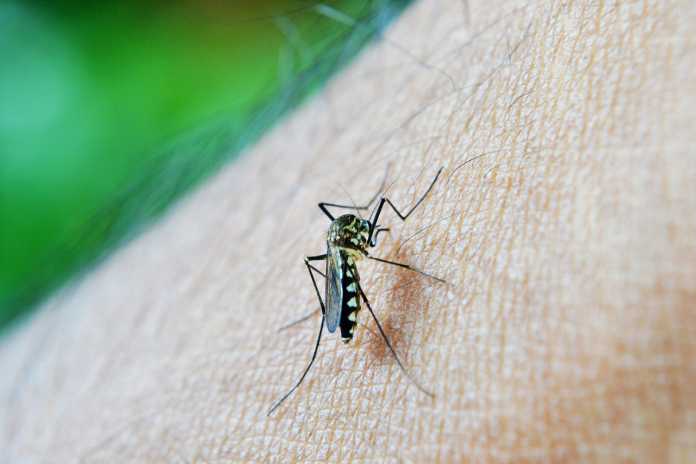CNN published a story claiming climate change is causing the mosquito borne disease dengue fever to spread. This is false. As CNN’s own story notes, dengue bearing mosquitos are already endemic to the countries it discusses, causing thousands of illnesses and hundreds of deaths each year. Data does not support the claim that modest warming makes mosquitos more prone to breed, and thus increase their numbers, or spread diseases like dengue.
Heather Chan, the author of a CNN story, titled “Singapore’s dengue ’emergency’ is a climate change omen for the world,” mixes facts and unsubstantiated speculation liberally throughout the report.
Singapore says it is facing a dengue “emergency” as it grapples with an outbreak of the seasonal disease that has come unusually early this year.
…
Experts are warning [the early high incidences of infection are] a grim figure not only for Singapore — whose tropical climate is a natural breeding ground for the Aedes mosquitoes that carry the virus — but also for the rest of the world. That’s because changes in the global climate mean such outbreaks are likely to become more common and widespread in the coming years.
To be clear, dengue fever is not a newly emergent disease. As described in a 2018 article in the journal Parasites and Vectors:
The earliest record of dengue comes from a Chinese medical encyclopedia dating back to 992 BC. Moreover, before the end of the 18th century, intermittent epidemics of a specific disease with a strong similarity to dengue occurred in Asia and the Americas; therefore, there is a hypothesis that between the 19th and 20th centuries, the virus probably spread throughout the tropics and subtropics.
So dengue is not new, rare, or being found in countries it hasn’t been recorded in for hundreds of years, nor is the species of mosquito that carries it, Aedes Aegypti.
The number of dengue fever infections, in Singapore and the 100 other countries where Aedes Aegupti is endemic and thrives, wax and wane each year. In Singapore, for instance, CNN reports, in 2021 5,258 cases were reported, whereas in 2020 the country experienced 35,315.
There is no evidence that the modest rise in temperature Singapore or other countries have experienced in recent decades makes mosquito’s more prolific breeders or more likely to become hosts for dengue fever and other vector borne diseases the mosquitos have hosted throughout the earth’s history, like malaria, the West-Nile, and Zika.
Nor, contrary to the claims made in the CNN report, is there evidence weather has become more extreme in tropical countries as a result of climate change, resulting in more disease carrying mosquitos. The U.N. Intergovernmental Panel on Climate Change’s recent 6th Assessment report finds limited evidence of increases in extreme weather events, and even less evidence linking changes in weather trends to human activities.
As repeatedly discussed at Climate Realism, here, here, and here, for example, and as detailed in Chapter Four of Climate Change Reconsidered II: Fossil Fuels, the vast body of scientific literature refutes CNN’s claim that climate change is likely to exacerbate the spread of mosquito borne diseases, like dengue fever.
Indeed, studies from Africa, to England and Wales, to North and South America, to Thailand and beyond refute any link between climate change and the spread of malaria, Dengue fever, West Nile virus, and other vector-borne diseases. For example, a 2010 study in the peer-reviewed journal Nature reports, “[The study’s authors] compared historical and contemporary maps of the range and incidence of malaria and found endemic/stable malaria is likely to have covered 58% of the world’s land surface around 1900 but only 30% by 2007.” In short, despite warming, vector borne diseases like dengue and malaria have become less prevalent and deadly as the climate has warmed.
The same paper rebuts potential assertions that there would be even further reductions in vector borne diseases but for global warming. The authors wrote, “widespread claims that rising mean temperatures have already led to increases in worldwide malaria morbidity and mortality are largely at odds with observed decreasing global trends in both its endemicity and geographic extent.”
World health authorities should fight dengue fever. Evidence suggests that trying to prevent climate change as a way to reduce incidences of dengue fever will be waste of time and resources. A few degrees change in temperature does not make mosquitos friskier or more disease laden. As was true with malaria; killing mosquitos, eliminating their breeding grounds, disrupting their breeding cycles, and developing medicines that prevent dengue infection or that reduce the harm resulting when dengue is contracted is the best hope to minimize or eliminate this all too often deadly disease.

















